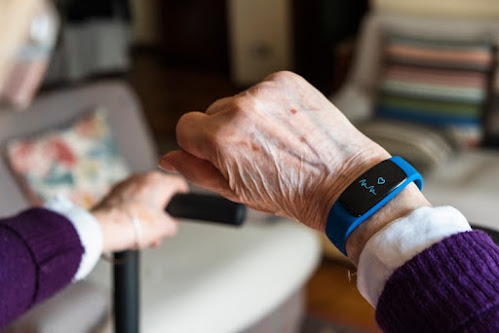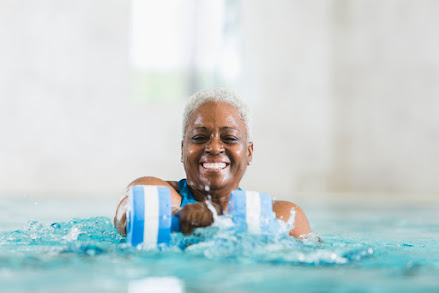Just because your loved one with Alzheimer’s is now in
a memory care community doesn’t mean that they can’t have or won’t enjoy
visitors. However, it takes patience, skill and a positive mindset for both
sides to have a good visit. Did we mention patience… because that is the most
important thing! It takes plenty of patience to change how you used to
interact, but remember this change is crucial to maintaining a positive and
strong bond with your loved one now. With that said, our team of memory
care specialists in South Jersey have put together 5 essential tips to
follow when visiting someone with Alzheimer’s or dementia.
- Be
positive and uplifting. It’s important to have the
right mindset when visiting a loved one with a dementia condition to avoid
upsetting or agitating them. This doesn’t mean that you have to turn your
cheerfulness up to 11, but it is a good idea to frame your visit as an
opportunity to spend some quality time together. Be calm and mindful of
your own feelings and focus on the little things that make your time
together worthwhile – not how things may have changed. Find ways that you
can make your loved one smile and laugh, relax and breathe deeply, and
don’t focus on the negative.
- Be
short and sweet. When talking to your loved
one, keep sentences short and sweet. Remember, they’ll have trouble
following a longer story, so try to keep your conversation at one idea per
sentence, giving your loved one time to digest it. Focus on what’s here
and now, or what’s in the past, as this tends to trigger long-term
memories and conversation more easily. Talk slowly, softly, and clearly –
and be prepared to repeat yourself. You can also use short, simple prompts
like “Tell me about your craft project,” or “Are you enjoying your meal?”
but be prepared to wait for an answer or not receive the answer you are
looking for.
- Sit
in silence. We can put a lot of pressure on
ourselves to interact with the loved one we’re visiting, but it’s not
necessary to make your visit busy in any way. You can sit in comfortable
silence together, take a quiet walk around the garden, look through a
photo album, or even watch TV together – your company and being there is
what truly matters. Some visitors like to bring their loved one’s favorite
music so they can listen together, or they read a book out loud to their
loved ones. Sometimes questions, conversation, and activities can be
stressful to people with dementia, and sitting quietly together can be
very comforting and soothing.
- Validate
their feelings and reality. In some ways, it
can feel like a loved one with dementia is in another world. They can be
happy about something they never used to like or upset about something
they used to enjoy. Whatever their reaction, it’s better to enter their
reality rather than trying to make them see yours. Just go with the flow
and allow them to express the feelings and thoughts they have regardless
of if they make sense or are appropriate. If they say a loved one who has
passed on had coffee with them yesterday, ask them how it was and what
they chatted about. If an activity upsets them, move on to something else.
Let them take the lead and show you, their world.
- Don’t
add frustration or stress. Having a loved one with a
dementia condition is very stressful, upsetting, and sad for you, as well
as for them. And certain things we say and do can make this worse for all
involved. Don’t say “Do you remember?” point out mistakes, or start an
argument, as this can cause severe agitation and bad feelings. Not to
mention, they may not even understand what the problem is, causing them to
feel embarrassed and react harshly out of fear. At the same time, don’t
assume that your loved one has no recall whatsoever. On good days, people
with dementia can have very clear memory recollection. Assuming the worst,
like your loved one is not capable of remembering anything at all, can
cause them to feel belittled or talked down to. To help prevent this,
follow their lead to see how they are doing on that particular day.
Appreciating the good days and having a little extra patience on the bad
ones can do wonders for both of you.
Alzheimer’s support at UMC in Cape May County
UMC at The Shores is a part of the United Methodist
Communities network, specializing in memory care in South Jersey. We understand
that dementia conditions are difficult to deal with, which is why we offer 24/7
comprehensive care for our residents, as well as support for their loved ones.
To find out more about our community and Tapestries
memory care in Cape May County, contact us today or visit our website at https://theshores.umcommunities.org/
Original blog posted on https://theshores.umcommunities.org/the-shores/5-tips-for-visiting-someone-with-alzheimers/













